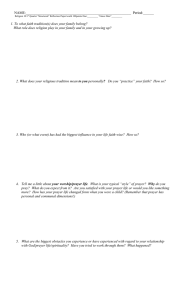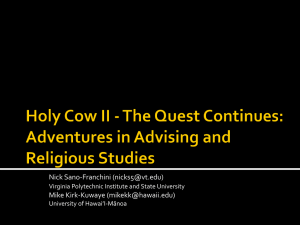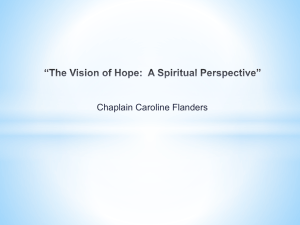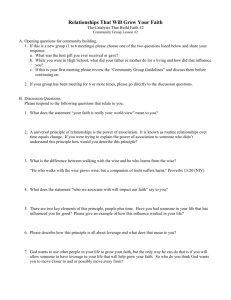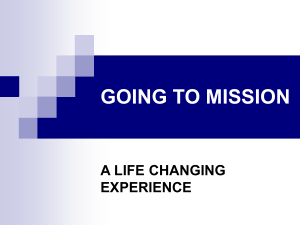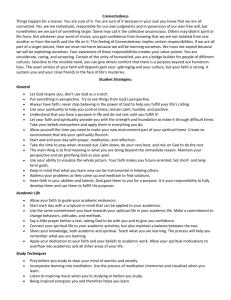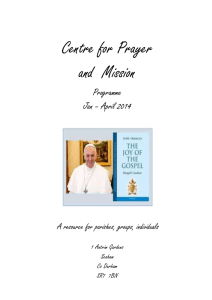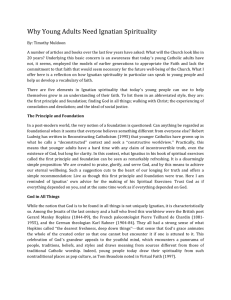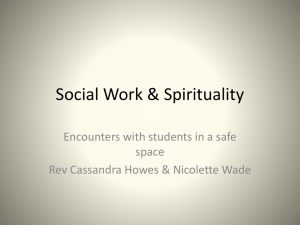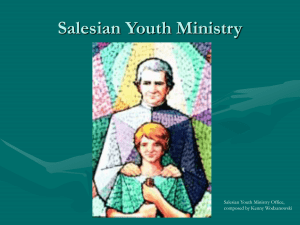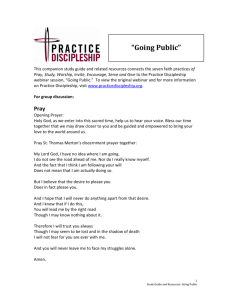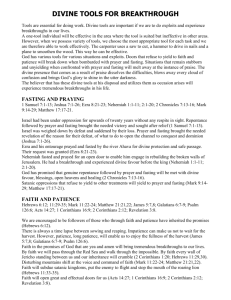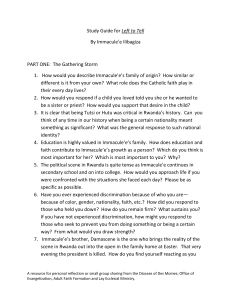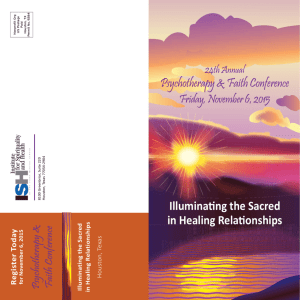Word File - Wheat Ridge Ministries
advertisement
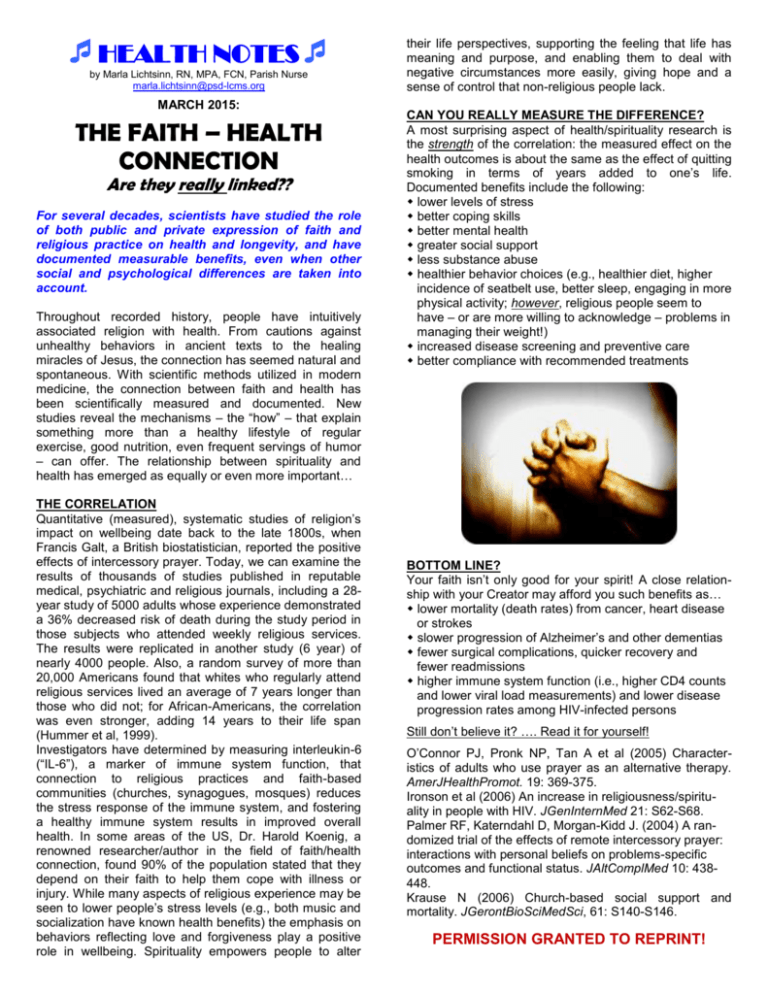
HEALTH NOTES by Marla Lichtsinn, RN, MPA, FCN, Parish Nurse marla.lichtsinn@psd-lcms.org MARCH 2015: THE FAITH – HEALTH CONNECTION Are they really linked?? For several decades, scientists have studied the role of both public and private expression of faith and religious practice on health and longevity, and have documented measurable benefits, even when other social and psychological differences are taken into account. Throughout recorded history, people have intuitively associated religion with health. From cautions against unhealthy behaviors in ancient texts to the healing miracles of Jesus, the connection has seemed natural and spontaneous. With scientific methods utilized in modern medicine, the connection between faith and health has been scientifically measured and documented. New studies reveal the mechanisms – the “how” – that explain something more than a healthy lifestyle of regular exercise, good nutrition, even frequent servings of humor – can offer. The relationship between spirituality and health has emerged as equally or even more important… THE CORRELATION Quantitative (measured), systematic studies of religion’s impact on wellbeing date back to the late 1800s, when Francis Galt, a British biostatistician, reported the positive effects of intercessory prayer. Today, we can examine the results of thousands of studies published in reputable medical, psychiatric and religious journals, including a 28year study of 5000 adults whose experience demonstrated a 36% decreased risk of death during the study period in those subjects who attended weekly religious services. The results were replicated in another study (6 year) of nearly 4000 people. Also, a random survey of more than 20,000 Americans found that whites who regularly attend religious services lived an average of 7 years longer than those who did not; for African-Americans, the correlation was even stronger, adding 14 years to their life span (Hummer et al, 1999). Investigators have determined by measuring interleukin-6 (“IL-6”), a marker of immune system function, that connection to religious practices and faith-based communities (churches, synagogues, mosques) reduces the stress response of the immune system, and fostering a healthy immune system results in improved overall health. In some areas of the US, Dr. Harold Koenig, a renowned researcher/author in the field of faith/health connection, found 90% of the population stated that they depend on their faith to help them cope with illness or injury. While many aspects of religious experience may be seen to lower people’s stress levels (e.g., both music and socialization have known health benefits) the emphasis on behaviors reflecting love and forgiveness play a positive role in wellbeing. Spirituality empowers people to alter their life perspectives, supporting the feeling that life has meaning and purpose, and enabling them to deal with negative circumstances more easily, giving hope and a sense of control that non-religious people lack. CAN YOU REALLY MEASURE THE DIFFERENCE? A most surprising aspect of health/spirituality research is the strength of the correlation: the measured effect on the health outcomes is about the same as the effect of quitting smoking in terms of years added to one’s life. Documented benefits include the following: lower levels of stress better coping skills better mental health greater social support less substance abuse healthier behavior choices (e.g., healthier diet, higher incidence of seatbelt use, better sleep, engaging in more physical activity; however, religious people seem to have – or are more willing to acknowledge – problems in managing their weight!) increased disease screening and preventive care better compliance with recommended treatments BOTTOM LINE? Your faith isn’t only good for your spirit! A close relationship with your Creator may afford you such benefits as… lower mortality (death rates) from cancer, heart disease or strokes slower progression of Alzheimer’s and other dementias fewer surgical complications, quicker recovery and fewer readmissions higher immune system function (i.e., higher CD4 counts and lower viral load measurements) and lower disease progression rates among HIV-infected persons Still don’t believe it? …. Read it for yourself! O’Connor PJ, Pronk NP, Tan A et al (2005) Characteristics of adults who use prayer as an alternative therapy. AmerJHealthPromot. 19: 369-375. Ironson et al (2006) An increase in religiousness/spirituality in people with HIV. JGenInternMed 21: S62-S68. Palmer RF, Katerndahl D, Morgan-Kidd J. (2004) A randomized trial of the effects of remote intercessory prayer: interactions with personal beliefs on problems-specific outcomes and functional status. JAltComplMed 10: 438448. Krause N (2006) Church-based social support and mortality. JGerontBioSciMedSci, 61: S140-S146. PERMISSION GRANTED TO REPRINT!

